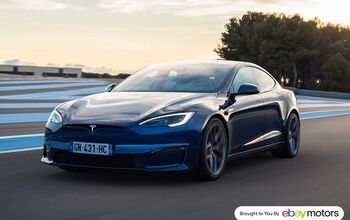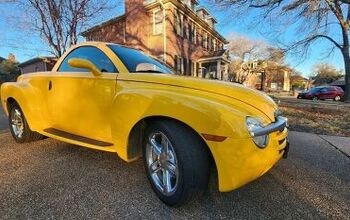Ioniq: From Overlooked Model to Its Own Brand

Low-end electric cars don’t get a lot of press these days, not with Silicon Valley upstarts and established OEMs rolling out mega-torque, high-zoot green vehicles at a steady clip. Yet the Hyundai Ioniq Electric has provided an alternative to the base Nissan Leaf since 2016, combining a usable-but-not-class-leading driving range with a relatively bargain basement price tag.
Joined by a super-efficient hybrid as well as a plug-in variant, the Ioniq lived in the shadow of competing nameplates its entire life. It’s bound to get more attention now, given that Cadillac Hyundai is turning the model into a brand.
Announced Sunday, the Korean automaker claims the Ioniq brand will cover three distinct electric models sharing the same E-GMP (Electric Global Modular Platform) architecture.
The models, slated to land starting early next year, include an initial midsize SUV called Ioniq 5. That’ll be followed up with, what else, the Ioniq 6 sedan in 2022. Coming on the heels of that introduction is the Ioniq 7, a “large” SUV due in 2024.
Hyundai claims the trio of models “will have a common theme of ‘Timeless Value’.”
“The vehicles will be inspired by past models, but they will be a bridge to the future,” the automaker stated. The first two models were foreshadowed by two concept vehicles: the 45 and Prophecy. Expect serious visual changes from the conceptual lineup seen above.
While the automaker doesn’t much much to say about the capability of these models, it did say that “highly adjustable” seats, wireless connectivity, and easy-to-use interfaces will factor into each of their cabins. Hyundai also didn’t say whether or not the Hyundai badge or name will appear on any of them, leaving some confusion as to whether this will be a true standalone brand and not a sub-brand (like the upcoming GMC Hummer EV pickup and SUV).
Naming aside, the upcoming line of Ioniq EVs is part of Hyundai’s strategy to have 1 million electric vehicles on the road by 2025, with a global EV market share of 10 percent. A tall order.
Weirdly, Hyundai made no mention of the existing Ioniq lineup and how that trio of affordable green cars fits into the automaker’s future.
[Image: Hyundai]

More by Steph Willems
Latest Car Reviews
Read moreLatest Product Reviews
Read moreRecent Comments
- Dartman https://apnews.com/article/artificial-intelligence-fighter-jets-air-force-6a1100c96a73ca9b7f41cbd6a2753fdaAutonymous/Ai is here now. The question is implementation and acceptance.
- FreedMike If Dodge were smart - and I don't think they are - they'd spend their money refreshing and reworking the Durango (which I think is entering model year 3,221), versus going down the same "stuff 'em full of motor and give 'em cool new paint options" path. That's the approach they used with the Charger and Challenger, and both those models are dead. The Durango is still a strong product in a strong market; why not keep it fresher?
- Bill Wade I was driving a new Subaru a few weeks ago on I-10 near Tucson and it suddenly decided to slam on the brakes from a tumbleweed blowing across the highway. I just about had a heart attack while it nearly threw my mom through the windshield and dumped our grocery bags all over the place. It seems like a bad idea to me, the tech isn't ready.
- FreedMike I don't get the business case for these plug-in hybrid Jeep off roaders. They're a LOT more expensive (almost fourteen grand for the four-door Wrangler) and still get lousy MPG. They're certainly quick, but the last thing the Wrangler - one of the most obtuse-handling vehicles you can buy - needs is MOOOAAAARRRR POWER. In my neck of the woods, where off-road vehicles are big, the only 4Xe models I see of the wrangler wear fleet (rental) plates. What's the point? Wrangler sales have taken a massive plunge the last few years - why doesn't Jeep focus on affordability and value versus tech that only a very small part of its' buyer base would appreciate?
- Bill Wade I think about my dealer who was clueless about uConnect updates and still can't fix station presets disappearing and the manufacturers want me to trust them and their dealers to address any self driving concerns when they can't fix a simple radio?Right.


































Comments
Join the conversation
I'm pretty sure the Hyundai dealer in Terre Haute IN had a buy a car, get a free minivan deal at one time. People remember bottom feeder marketing. If I've got the brands straight; sell the Genesis and Ioniq in a different showroom.
They tried to give away an Ioniq on today's episode of Let's Make a Deal. It was the Big Deal of the Day but the contestant didn't pick Door #1. And that's the extent to which I have thought about the existence of the Hyundai Ioniq in 2020.